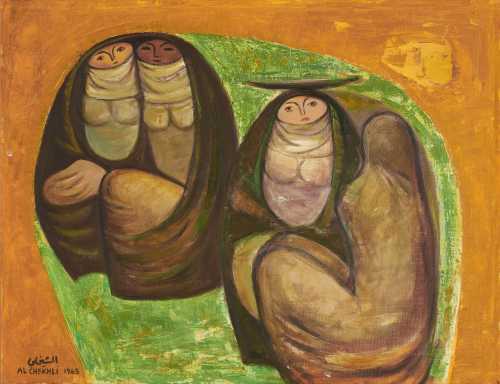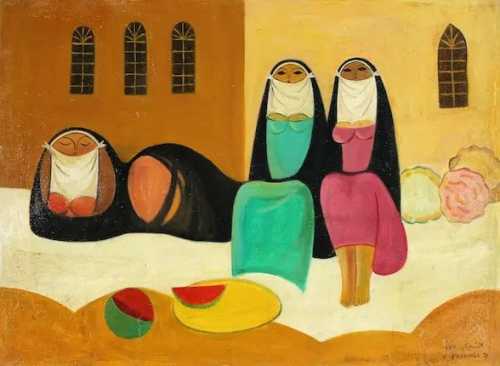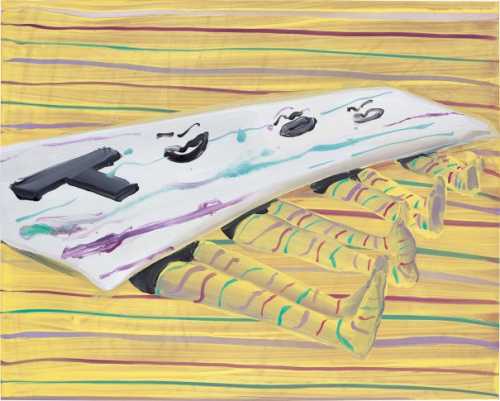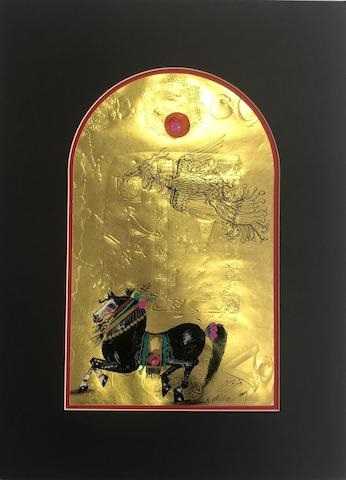- Friendship 1965
- Oil on canvas
- Painting
- 64.7 * 50 cm
- signed in Arabic; signed and dated AL CHEKHLI 1965' (lower left)
20 October 2021
Estimation
£5,000
6,908 USD
-
£7,000
9,671 USD
Realized Price
£6,875
9,498 USD
14.583%
Artwork Description
A student of the arts pioneer Faeq Hassan, Ismail Al-Sheikhly developed a unique style recognisable from the abstracted figures and vibrant colour schemes focusing specifically on Iraqi village life and countryside. Educated at the Institute of Fine Art in Baghdad, Al-Sheikhly was a member of the first graduating class in 1945. The artist received a scholarship to study abroad at the École Nationale Supérieure des Beaux-Arts in Paris in 1951 and returned to become actively involved in the Pioneers Group (Ar-Ruwwad) that began under the name Société Primitive, founded by Faeq Hassan. The group focused on exploring everyday life in Baghdad, with visits to the rural towns outside of the city centre.
Although The Pioneers did not create nor issue a direct manifesto, the aim of the group focused on such qualities as skill, primitive expressiveness and originality in the use of lines, colours and light, qualities exemplified by Faeq Hassan who chanelled the techniques of paintings by Courbet, Delacroix, Neo-Classicists and the Impressionist schools.
Women are a central subject for Al-Sheikhly, and as depicted in the present two examples, his careful attention to curved lines met with earthy, natural colour palettes, are indicative of the artist's explorations with the Pioneers group. Al-Sheikhly depicted women in their daily activities, whether attending the mosque, souks, or partaking in domestic tasks. While his later works are more figurative, they become more abstracted with impressionist touches, oftentimes depicted huddled within crowds.
Al-Shaikhly was a founding member of the Society of Iraqi Plastic Artists and joined the Iraqi Artist Society, later becoming director general of the Directorate of Plastic Arts in Baghdad.
More lots by Ismail Al-Shaikhly
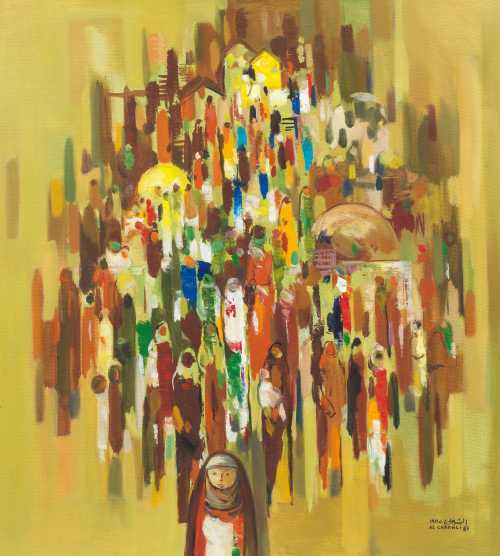
Women of Baghdad
Estimation
£8,000
10,667 USD
-
£10,000
13,333 USD
Sale Date
Bonhams
-
25 November 2025
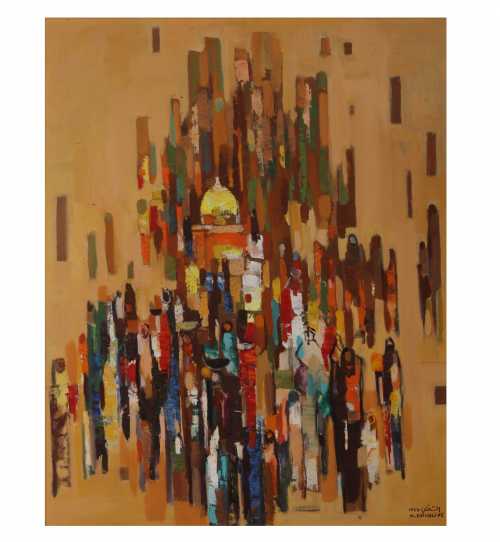
Untitled (Friday prayers)
Estimation
£5,000
6,911 USD
-
£8,000
11,057 USD
Realized Price
£6,250
8,639 USD
3.846%
Sale Date
Chiswick Auction
-
29 October 2021
Realized Price
10,953 USD
Min Estimate
7,542 USD
Max Estimate
10,808 USD
Average Artwork Worth
+43.476%
Average Growth of Artwork Worth
Sales Performance Against Estimates
Similar Artworks
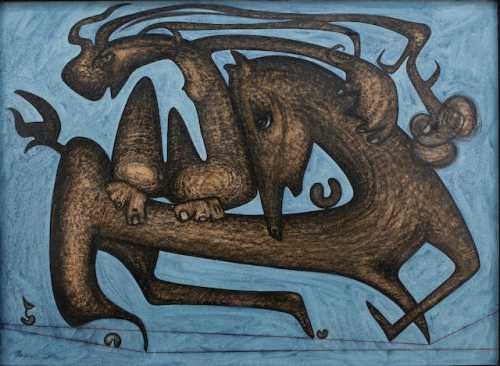
Odorless Black Flower
Estimation
£5,000
7,042 USD
-
£8,000
11,268 USD
Realized Price
£6,375
8,979 USD
1.923%
Sell at
Sale Date
Bonhams
-
9 March 2021
